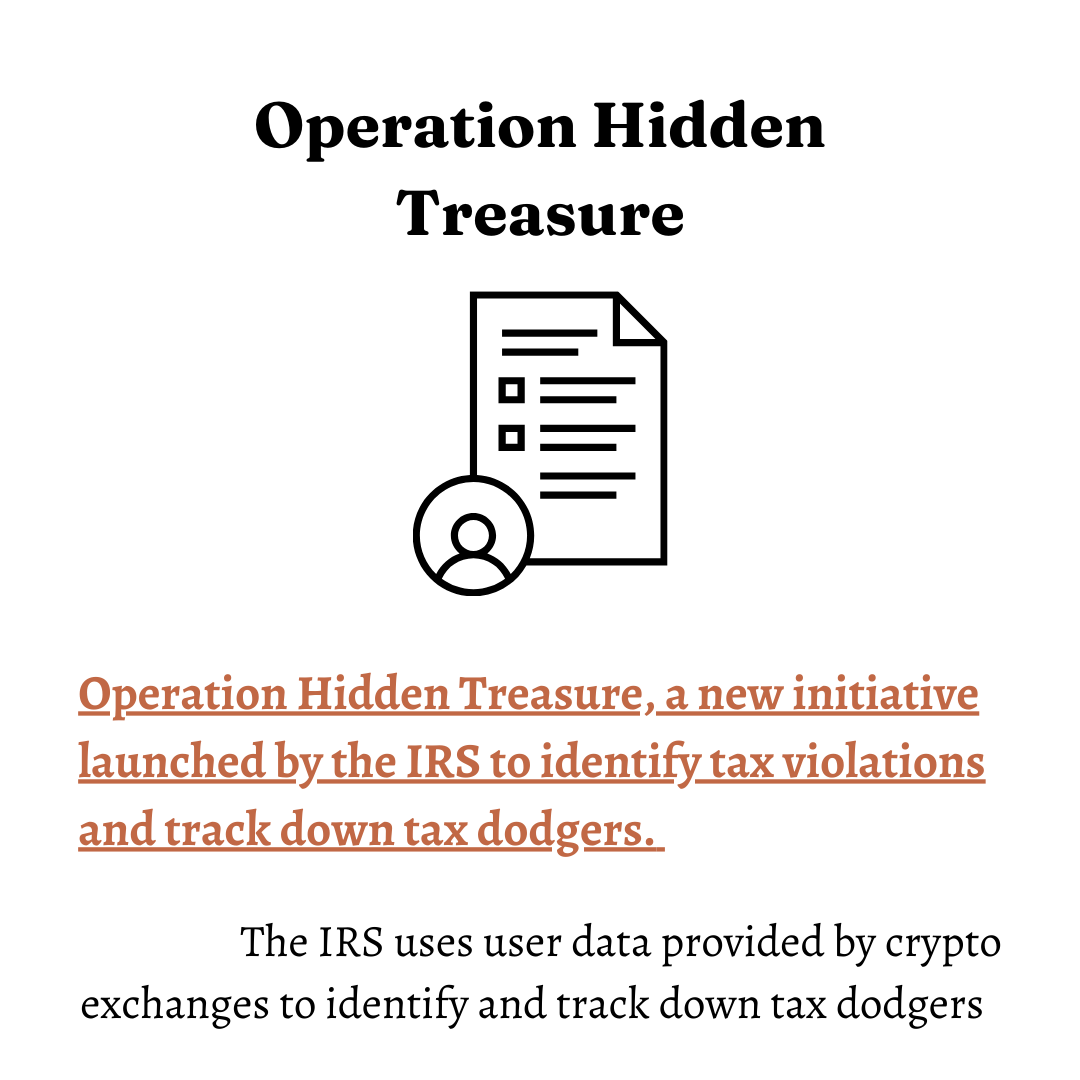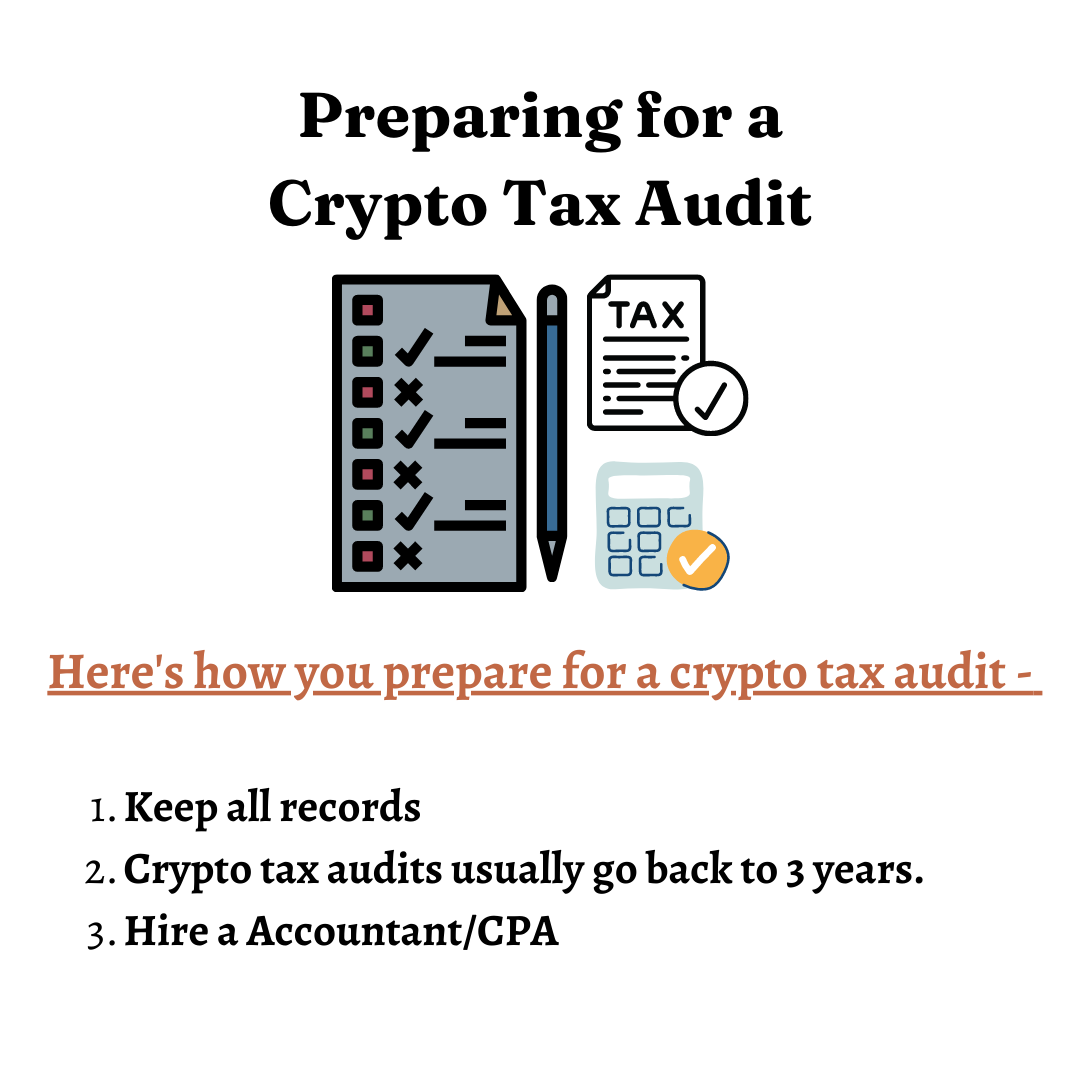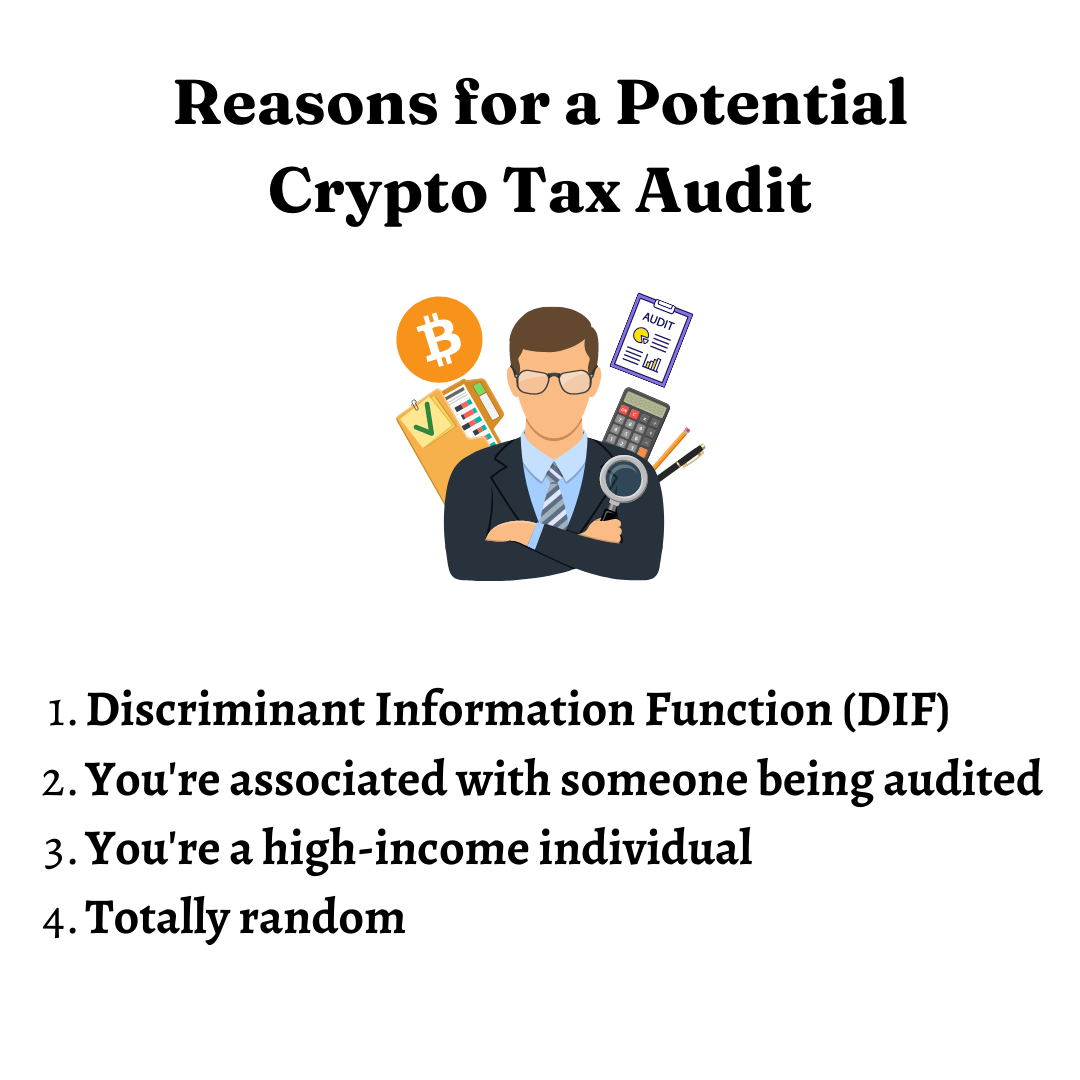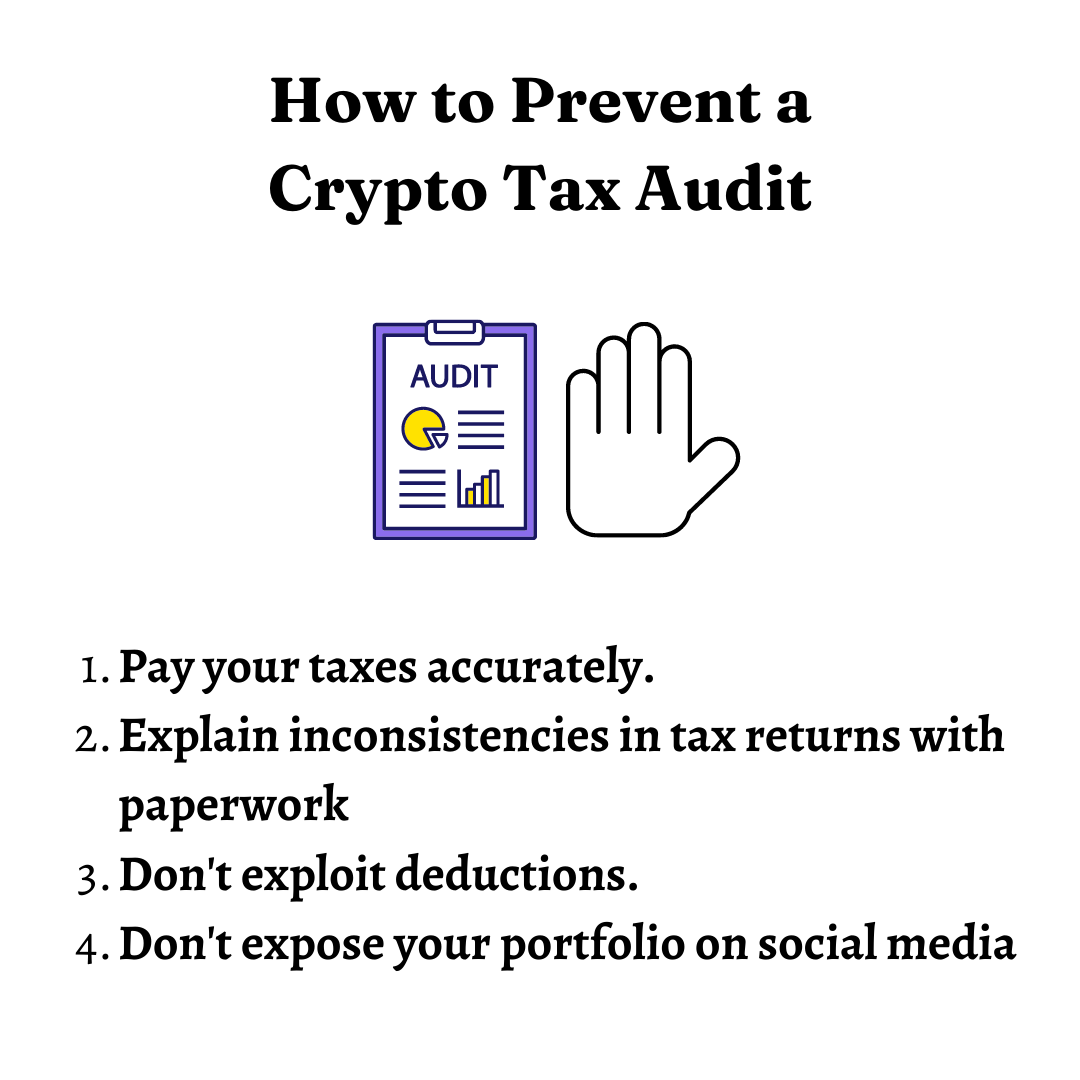Here’s How you Survive a Crypto Tax Audit in 2022
The IRS has announced that they would be increasing the number of crypto tax audits to chase down tax dodgers. As a result, they are sending letters to thousands of crypto investors and traders, reminding them to pay their taxes.
If you’ve also received one and are worried about a potential crypto tax audit, this article is for you.
Even if that’s not the case and you just wanna know what triggers a crypto tax audit, how to prepare for one and lastly, how to avoid them, read along.
Operation Hidden Treasure

Before we talk about how to prepare for an audit, let’s quickly talk about Operation Hidden Treasure, a new initiative launched by the IRS to identify tax violations and track down tax dodgers.
As we know, cryptocurrency technology is such that it allows its users to be anonymous. But that interferes with the IRS and their work. In order to solve this problem, the IRS sought help from the legal system in a series of court battles known as the “John Doe Summons”.
In this series of John Doe Summons, the Federal Court summoned multiple centralized crypto exchanges. The IRS demanded that they share their user data with them, to which they refused. Eventually, the IRS won, and these exchanges were forced to share user data. Coinbase, Kraken and Poloniex were among these platforms.
It’s important to note that these were centralized exchanges because there’s a difference between centralized and decentralized exchanges.
Using these user data and KYC information provided by these platforms, the IRS can efficiently identify and track down taxpayers that are avoiding taxes.
Preparing for a Crypto Tax Audit

Let’s get this out of the way first. This is what you need to prepare for a crypto tax audit –
Keep All Records
The following is a list of information and records the IRS generally asks for, depending on what kind of audit it is. But keep in mind the IRS can ask for a wide variety of questions, records and information other than this.
- All wallet IDs and blockchain addresses
- All cryptocurrency exchange and P2P facilitator accounts.
For each individual transaction, you need to provide the following information:
- The date and time of each crypto asset purchase.
- The cost basis and FMV of each crypto asset when purchased.
- The date and time each crypto asset was sold (disposed of).
- The sale price or FMV of each crypto asset when sold (disposed of).
- Accounting method used for the cost basis of each transaction.
As you can imagine, you would be banging your head against the wall if you tried to do all of this by yourself. That’s why using a crypto tax software like Bitcoin.Tax is so useful, especially for these scenarios.
Bitcoin.Tax collects all your transaction history from all the different exchanges and wallets you’ve been using. Then it calculates the cost basis, FMV, capital gains and income tax using your preferred accounting methods.
Crypto Tax Audits Usually Go Back…
Now you know what information and record you need to have during a crypto tax audit. But how do you know how far back you need to go to collect these records?
The IRS usually goes back to 3 years. In some cases, up to 6 years. However, legally, the IRS can go as far back as they want. But that’s very rare and usually only happens in cases involving tax fraud or a high-income individual.
Hire an Accountant/CPA
If all of this sounds really difficult and confusing, hire a professional. Hire an accountant or CPA who can not only help with sorting out all your records but even guide you through the entire process. Having a professional by your side can make everything less difficult.
Plus, you should absolutely hire an accountant if you’re involved with complex crypto activities like staking, yield farming, liquidity pools and so on.
What Happens in a Crypto Tax Audit
There are different kinds of crypto tax audits. Some don’t require a face-to-face interview, while some do. Some are shorter, while others take time. So, depending on which one you get, the process will differ.
Nonetheless, most audits are pretty simple and straightforward.
An IRS agent or multiple agents will cross-check your transaction and trade history against your tax return and look for discrepancies. Usually, there will also be a crypto expert to guide them through different kinds of transactions and activities.
If you only use a few crypto exchanges and wallets, your audit shouldn’t take much time.
But if you’re involved with more complex crypto activities like the ones we mentioned before – liquidity pools, crypto staking, mining, and so on, your audit might last longer than usual.
Following up with the audit, you’ll receive a letter explaining all the findings and taxes you owe to the IRS. But during the audit, if the IRS identifies any tax frauds, you’ll be prosecuted in the Department of Justice for criminal proceedings.
Check out this conversation with Tax Lawyer Alex Kugelman where both Sal and Alex dive deep into IRS tax audits.
Signs of a Potential Crypto Tax Audit
Remember about the letters that we talked about in the beginning. Well, the IRS has started sending out these letters from 2019. There are three different versions of the letter – Letter 6174, 6174-A and 6173.
Letter 6174 – This one’s just a general informative letter informing taxpayers that they have to pay taxes on crypto. If you receive this one, you can relax. You’re likely not getting audited.
Letter 6174-A – This one’s a little more serious. It says that you must pay your crypto taxes, or the IRS will take necessary actions against you. This letter heavily implies that a crypto tax audit is coming.
Letter 6173 – This is the most urgent out of all. It’s for people under-reporting or not paying their taxes at all. This letter comes with a deadline. If you don’t respond by that deadline, you’ll face charges of perjury. If you receive this letter, you should respond as soon as possible.
Reasons for a Potential Crypto Tax Audit

Discriminant Information Function (DIF) – It’s a system and algorithm that searches for anomalies, deductions, missing income and other inconsistencies that seem unusual and out of place in your tax return. It may or may not be correct, but it can certainly put you on the map for a crypto tax audit.
You’re associated with someone being audited – If you’re financially associated with someone, you could be audited, along with them as a consequence. Some examples are – business partners, husband or wife, other family members and so on.
You’re a high-income individual – If you’re someone who falls under the upper-end of the income bracket, $500,000 or more, to be specific, your chances of getting audited increase significantly.
Check out how much tax you owe based on your income bracket.
Totally random – Sometimes, the IRS doesn’t need any reason for conducting a tax audit. Sometimes, it’s just random.
How to Prevent a Crypto Tax Audit

As we discussed, sometimes, even if you do everything right, you might still get audited. However, that doesn’t mean you can’t do anything to lower your odds of an audit. Here are a few things you should be doing to prevent crypto tax audits.
1. Needless to say, pay all your taxes and file your yearly tax return correctly. Make sure you don’t make any mistakes or errors. Double-check everything. If needed, triple-check everything. The best way to not make any mistakes or errors is to use Bitcoin.Tax.
2. If you have any unusual activity or inconsistency and you suspect that it can raise some red flags, provide more explanation with paperwork in your tax return. For example, if you had a sudden, exponential growth in your income, explain that with additional paperwork on your tax return.
3. It’s tempting to deduct as many costs and expenses as possible but be reasonable. Don’t exploit and deduct large amounts of expenses, sometimes which don’t even exist and make yourself a target.
This guide on tax-saving strategies will teach you how to use deductions to lower your taxes the right way.
4. Don’t flaunt yourself, your portfolio or your earnings out there on the internet and social media. Sometimes, that can catch the attention of the IRS.
Check out this conversation with Alex Kugelman for an in-depth discussion on crypto audit defense.
Don’t be super nervous or anxious about a crypto tax audit. If you have paid your taxes accurately, you have nothing to worry about. And to make things simple and less stressful, use a crypto tax software like Bitcoin.Tax.
Other than that, if you’re still worried about it and fear that you might have incorrectly paid your taxes, consult with a lawyer.